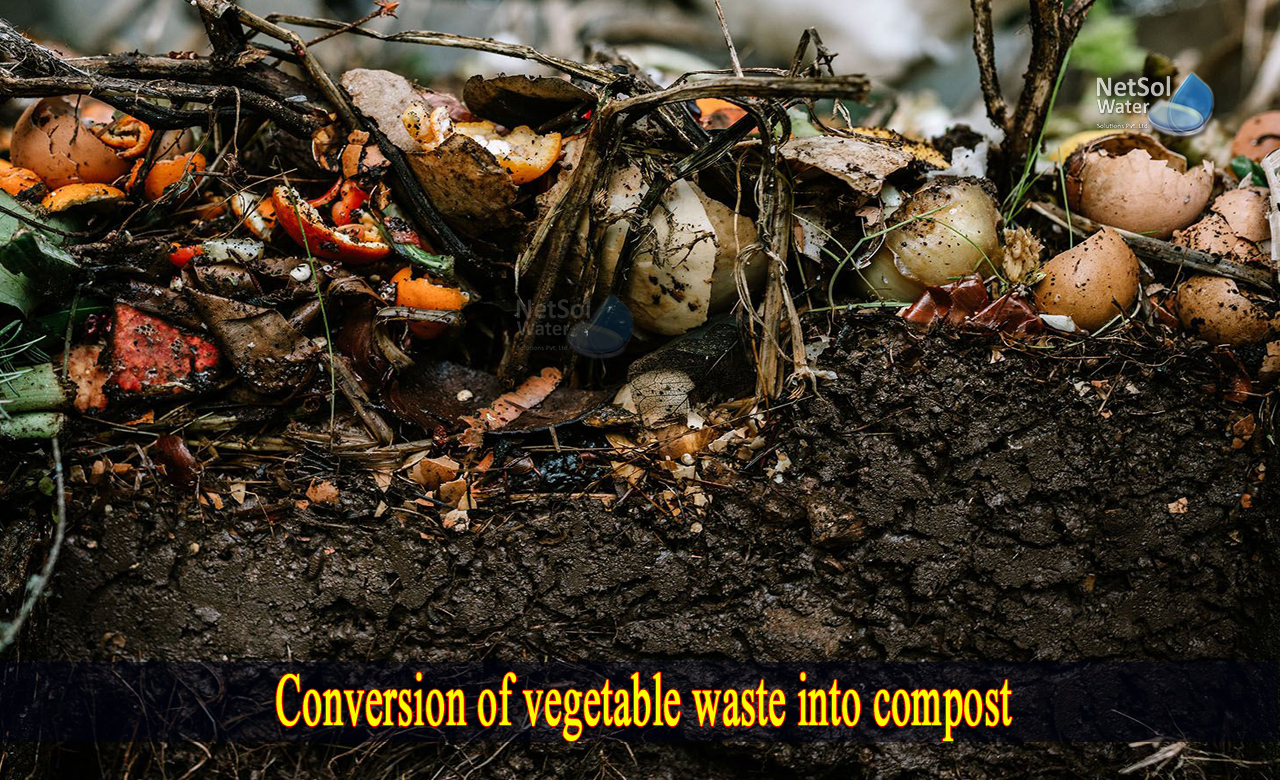How to convert vegetable waste into compost?
The average urban Indian creates almost 700 grams of solid waste each day, or over 250 kilograms per year. More than half of what we toss out carelessly is organic waste, which, when composted, may generate rich top soil for our plants. Unfortunately, most of us do not separate our dry and moist waste, making composting impossible. The valuable wet waste, which has the potential to become black gold, stays unusable waste in our landfills.
Furthermore, by combining our food waste with recyclable waste (paper, plastic, metal), we reduce the recoverability of even our recyclable waste. We recover low amounts of value from our waste if we delegate this job to the municipality without requiring source separation. Municipalities in India are able to compost just 0.21 percent of the moist waste we throw away due to inadequate source segregation.
Citizens fulfilling their civic responsibility of source segregation and composting are the key to a clean, waste-free city.
Steps to convert vegetable waste into compost!
People must modify their established waste management habits and become proud participants of “Swachh Bharat Abhiyaan” by mastering the simple process of decomposing common kitchen waste into a rich soil known as compost.
The following are the processes of converting waste into nourishing manure:
Step 1: Locate a suitable location for composting: While you may compost anywhere in the house: inside or outside; it is vital that you choose an area, whether it is your kitchen, balcony, or any other location.
Step 2: Sort your waste: This is one of the most crucial processes in the composting process. You must categorize waste into three types:
1) Non-edible waste, such as fruit and vegetable peels, leftover cooked food, and so on.
2) Dried waste, such as dry leaves, newspaper pieces, and biodegradable packaging material; and
3) Non-biodegradable waste, such as plastic/foam packaging, metal cans, glass, and so on. While you can re-use the third category items as needed, the remainder of the waste must be maintained in two separate containers with firmly closed lids to minimize the penetration of pests, flies, or worms.
Step 3: Construct your composting bin: After you've separated the waste, it's time to construct the container in which the composting will take place. You may use any type of container, from a bucket to a large basket, or even a garden pot. Then, drill 4-5 holes at different levels around the container to ensure appropriate aeration for the composting process.
Step 4: Begin the composting process: Before you begin, put a layer of newspaper as a base to minimize spills and a layer of dirt at the bottom of your composting bin. To keep your compost healthy, make sure there is an equal proportion of dry and moist waste in the bin.
To do this, apply equal and alternate layers of dry and moist waste. You should add soil once a week and you may speed up the process by mixing in some semi-composted dirt with the new batch.
Step 5: Compost Management Do’s and Don'ts: When your compost stinks owing to an imbalance of waste in the bin, you may add extra newspaper waste or construct additional holes. You may also sprinkle some water on the compost if it becomes too dry and stir the waste pile with a shovel to allow it to decompose properly. Within 8-10 weeks, your compost will be ready to use in your garden or potted plants.
Conclusion
While you may choose to decompose your waste at home, you can also opt to decompose big amounts of waste in Netsol Water Solutions Waste Recycler’s. Within 24-48 hours, the devices turn mixed organic waste into compost. The machine has ground-breaking technology that converts kitchen waste and horticultural waste into organic compost.
If you are you curious about how we can aid different premises with the sustainable solid waste management services, contact one of our experts to clear your confusions!
Netsol Water is Greater Noida-based leading water & wastewater treatment plant manufacturer. We are industry's most demanding company based on client review and work quality. We are known as best commercial RO plant manufacturers, industrial RO plant manufacturer, sewage treatment plant manufacturer, Water Softener Plant Manufacturers and effluent treatment plant manufacturers. Apart from this 24x7 customer support is our USP. Call on +91-9650608473, or write us at enquiry@netsolwater.com for any support, inquiry or product-purchase related query.



